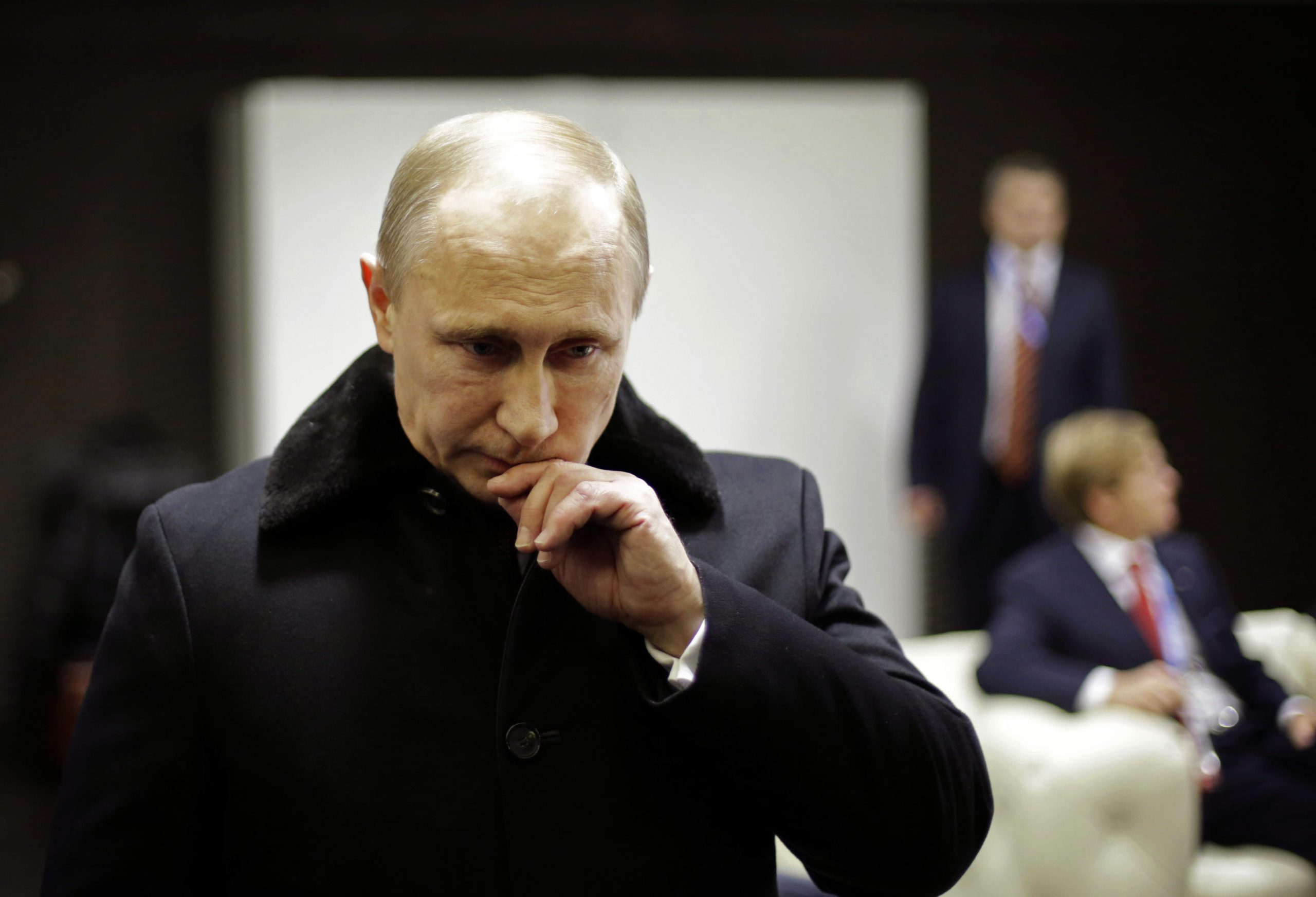
Spring came more quickly in the Caucasus. Those first warm days that year made the late winter cold of Moscow seem even more remote, yet the signs of the destructive might of Moscow’s power were all around. The centre of Grozny, the main city in Chechnya at Russia’s southern edge, was so completely ruined that it seemed there was not a single undamaged building left standing.
All the same, that Sunday, people were going to the polls. The vote, on 26 March 2000, confirmed Vladimir Putin in the Kremlin’s top job. He has remained at the summit of Russian power ever since.
As one of a small number of foreign correspondents reporting from Grozny that day, I had flown in on a Russian army helicopter. Our return was delayed because it broke down. I had spent night before in Mozdok, the main garrison town of the North Caucasus. Battle-stressed Russian officers spent weekends there with girlfriends, or in poorly-lit cellar restaurants, or both. Sometimes they would ask us outsiders to drink with them. Menace lurked in their slurred offers of hospitality.
For they lived in a Russia which no longer loved the west, if ever it had. In the view of many Russians, the Nineties had seen two tenets of received Soviet wisdom justified. One, under capitalism everyone except a tiny few would be poor. The rise of the oligarchs over a population whose wages, if paid at all, evaporated with inflation had fulfilled that prophesy. Two, if the Warsaw Pact ceased to exist, NATO would attack “socialist” countries. That had come true during the war over Kosovo in 1999.
The west had encouraged the former – although they called it a “market economy” rather than “capitalism” (the latter word fell just too hard on ears used to the certainties formerly offered by Marxism-Leninism) – and carried out the latter.
Vladimir Putin’s political genius lay in understanding that his constituency thought this way. Some of us western correspondents in Moscow in the 1990s used to joke that anyone who ran for president on a slogan of ‘order and sausage’ would win easily, elected by a population sick of post-Soviet lawlessness and ruinously high food prices. We even made up a name for our imaginary candidate: Mogutin, from the Russian ‘mogu’, meaning ‘I can’. Change the Slavic root for a Latin-sounding one and you might end up with “Putin”.
It is an uncomfortable truth for Putin’s opponents in Russia, minority as they are, that he understood what many voters wanted, and gave it to them. Nor has his appeal been confined to those whose memories conjure up an idealized Soviet past. Many people in their twenties now, who remember chaos and poverty in their Nineties childhoods, have no desire to try that brand of democracy again.
After fifteen years at the top, how long does Putin have left? The Russian constitution permits him to stand again in 2018 for a further six year term, meaning he could clock up a full quarter century, give or take a few months
Mikhail Khodorkovsky, once Russia’s richest man, suggested last month at Chatham House that “autumn had arrived” for Putin. Khodorkovsky is hardly Putin’s biggest fan. He spent ten years in jail for tax evasion and theft, a sentence his supporters believe was really motivated by his political activities.
Khodorkovsky did add, though, that this ‘autumn’ might ‘be long’.
Certainly, the opposition in Russia do not look ready to launch a mass movement. Many of Putin’s opponents remain stunned by the killing of Boris Nemtsov, gunned down in sight of the Kremlin walls.
For now, Putin apparently retains a popularity most presidents cannot even picture. Yet despite his obvious political skill, the system he has built is inherently unstable. Why else did his recent disappearance from the public eye cause such concern?
For all his ability to hang on to power and popularity, Putin has created a Russia confident in him, but not necessarily in itself. Perhaps the most perceptive thing said about the country’s entire post-Soviet history actually came from Putin’s protégé, Dmitry Medvedev, when he took up his term as President in 2008, before Putin returned to the post four years later.
“We must ensure true respect for the law and overcome the legal nihilism that is such a serious hindrance to modern development,” said Medvedev.
Various attempts have been made to overcome that nihilism: a raising of the profile of the Russian Orthodox Church; appeals to patriotism based on the memory of Second World War heroism; rejoicing at the return of Crimea to the motherland.
What prospects are there for better relations with the west? Some would argue that the situation in Ukraine, and the accompanying sanctions, may speed up Putin’s political autumn. Even if that is the case, there is likely to be a prolonged, unsettled, diplomatic winter before there is any sign of spring.
James Rodgers worked as a journalist in Moscow for the BBC and Reuters TV in on three postings between 1991 and 2009. He is now a Senior Lecturer at City University London. He is the author of Reporting Conflict (2012) and No Road Home: Fighting for Land and Faith in Gaza (2013). His next book Headlines from the Holy Land: Reporting the Israeli-Palestinian Conflict will be published in the autumn in the UK and the USA by Palgrave MacMillan






